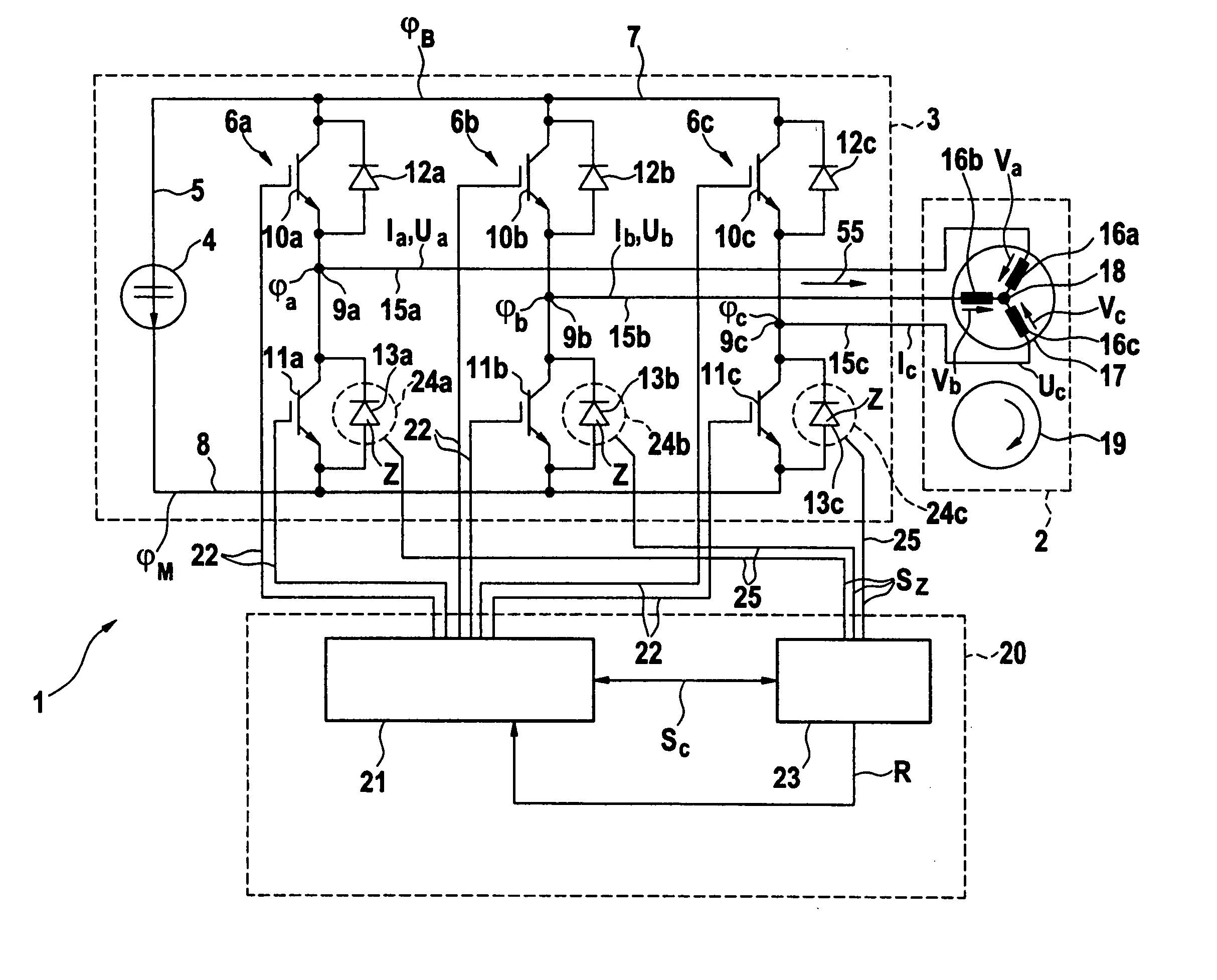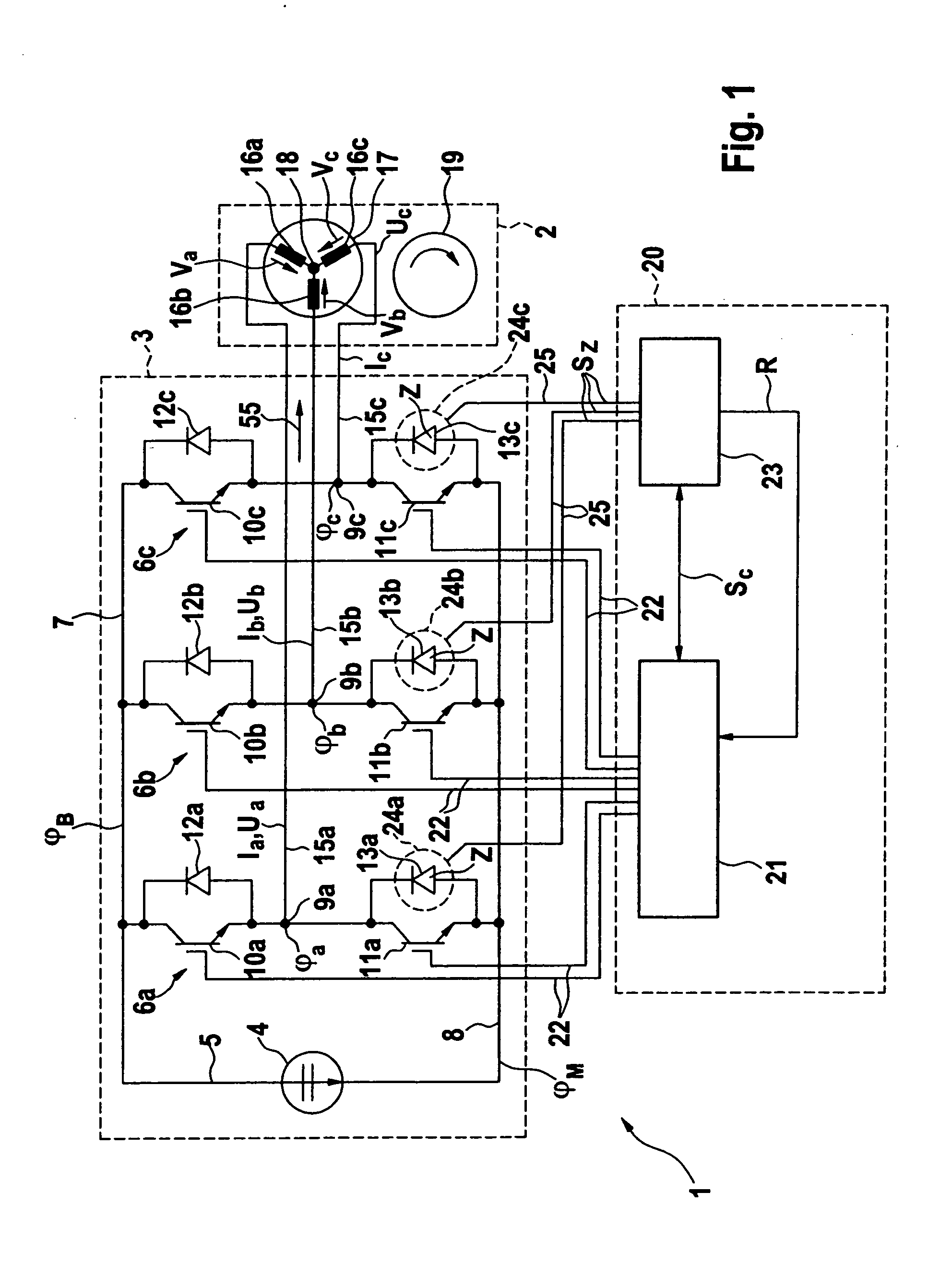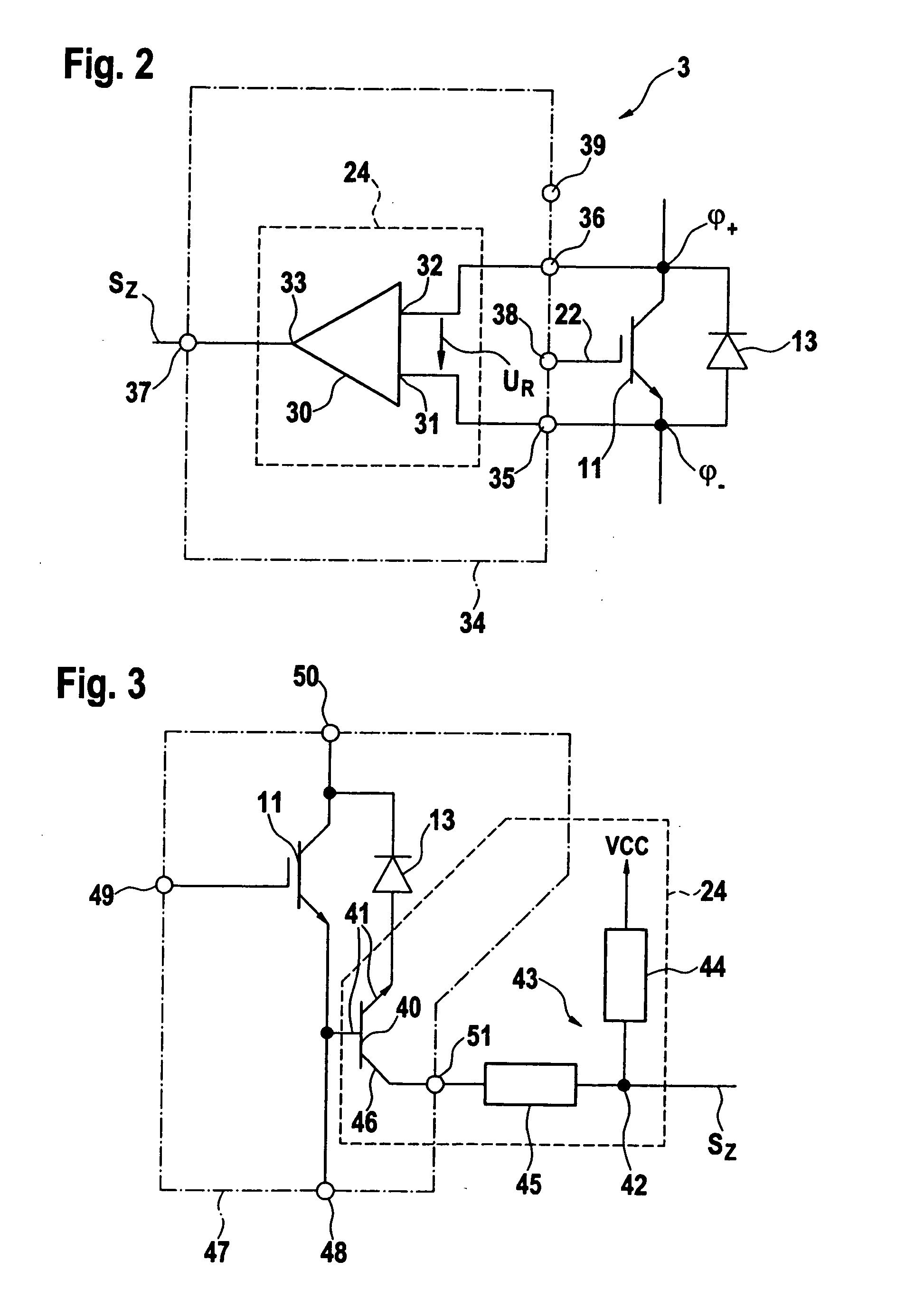Method and device for controlling a multiphase electronically commutated motor
a technology of electronic commutation and multi-phase motor, which is applied in the direction of automatic controllers, electric variable regulation, synchronous motor starters, etc., can solve the problem of not being able to understand phraseology in the sense, and achieve the effect of precise and technically simple detection of control-relevant variables
- Summary
- Abstract
- Description
- Claims
- Application Information
AI Technical Summary
Benefits of technology
Problems solved by technology
Method used
Image
Examples
Embodiment Construction
[0040] Components and elements which correspond to one another are denoted by the same designations throughout the figures. Referring now to the figures of the drawing in detail and first, particularly, to FIG. 1 thereof, there is shown a simplified schematic circuit diagram of a device 1 for controlling a three-phase, electronically commutated motor 2. The motor 2 is, for example, a brushless synchronous motor with a permanent magnet. The method described below and the associated device 1 can, however, also be used to control other motor types, in particular in the case of an asynchronous motor or a reluctant synchronous motor.
[0041] The device 1 contains an inverter-side bridge circuit 3 that is supplied with voltage by a DC voltage source 4 via a voltage intermediate circuit 5. The bridge circuit 3 contains three phase half bridges 6a, 6b, 6c that are connected in a parallel circuit in each case between a positive pole 7 and a negative pole 8 of the voltage intermediate circuit ...
PUM
 Login to View More
Login to View More Abstract
Description
Claims
Application Information
 Login to View More
Login to View More - R&D
- Intellectual Property
- Life Sciences
- Materials
- Tech Scout
- Unparalleled Data Quality
- Higher Quality Content
- 60% Fewer Hallucinations
Browse by: Latest US Patents, China's latest patents, Technical Efficacy Thesaurus, Application Domain, Technology Topic, Popular Technical Reports.
© 2025 PatSnap. All rights reserved.Legal|Privacy policy|Modern Slavery Act Transparency Statement|Sitemap|About US| Contact US: help@patsnap.com



